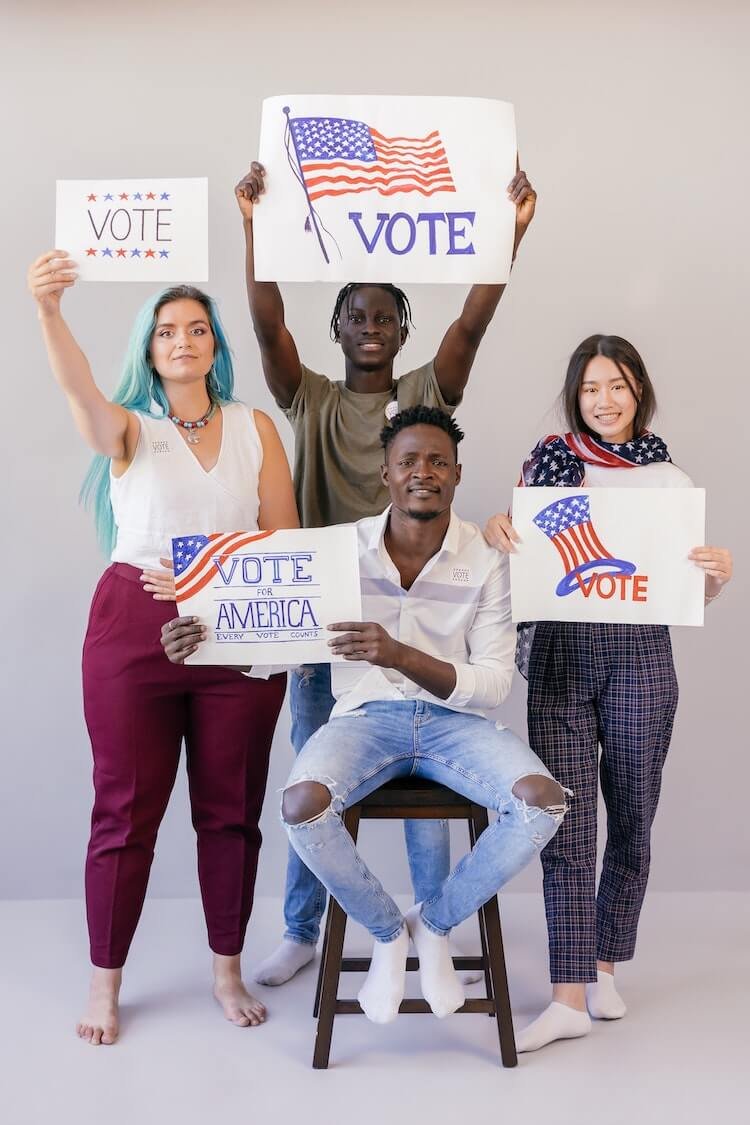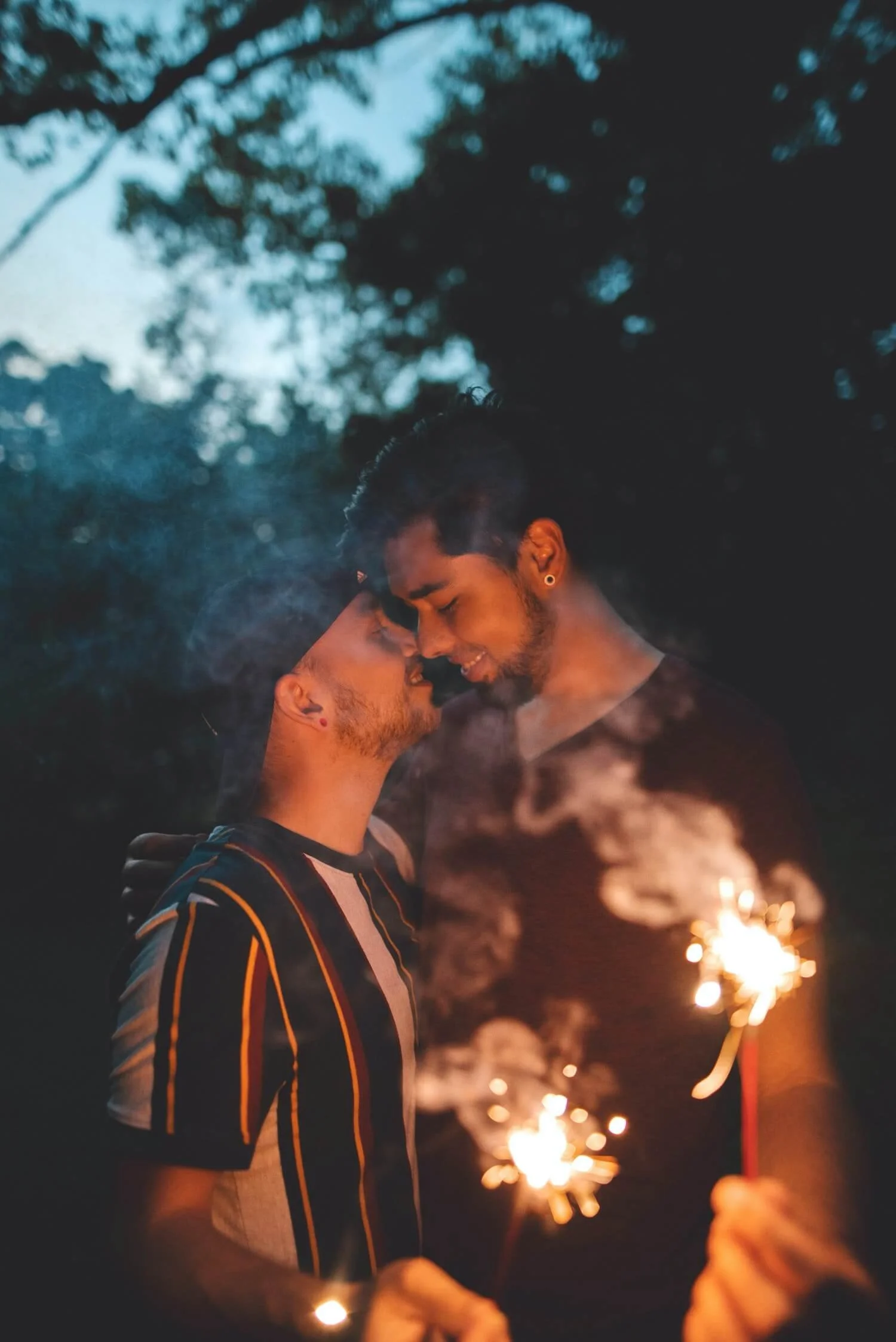13 Ways That Everyone Can Support LGBTQIA+ Mental Health
During Pride Month, there are a lot of ways to support the LGBTQIA+ community. There are various organizations you can donate to, ways to respectfully celebrate at Pride, and there are day-to-day steps to make sure the LGBTQIA+ friends and family members in your life feel cared for during this celebratory month and beyond. It’s important to know that being an ally isn’t a noun; it’s a verb.
As a member of the LGBTQIA+ community myself, I reached out to my online community and asked my followers what makes them feel the most seen, supported, and how non-LGBTQIA+ community members can support their mental health. Here’s a run down of what they had to say and how you can implement these actions into your life as a supporter of the LGBTQIA+ community.
““...being an ally isn’t a noun; it’s a verb. ””
Don’t Ask Why Someone Is Not Out Publicly Yet
There are a lot of people who aren’t out publicly yet for various reasons. There could be religious trauma at play or other reasons why someone may not feel safe to be out or why someone may not want to make a public announcement. That doesn’t make their queerness any less valid. Allow people to talk about their queerness at their own pace without any pressure.
Use The Correct Pronouns
One of the most affirming things you can do for someone is using the pronouns they ask you to. An important lesson to learn is that pronouns aren’t preferred; they are necessary. If you accidentally use the wrong pronoun or misgender someone, it’s okay. Don’t make a big deal out of it, apologize, and do better next time. Being constantly misgendered can be hard on mental health, so this is an easy step to be affirming and supportive.
Ask Which Pronoun Someone Prefers Depending on the Environment
While pronouns aren’t “preferred,” there may be a situation where someone uses multiple pronouns. In that case, it’s okay to ask which one they prefer for different situations. A way to be especially supportive is to ask which pronoun someone uses depending on what environment they are in. For example, someone may not want to use a certain pronoun around family for safety reasons. Checking in with your friend about this shows them that you see them and want to help them feel safe in different spaces.
Advocate for Your Friends and Family
There can be a lot of pressure for a trans, non-binary, or gender non-conforming person to correct someone when they use the wrong pronouns. A way to be helpful in a group situation is to advocate and correct someone if/when they use the wrong pronouns, as long as it’s the right situation (read: above subheading). Having to correct people can be exhausting and having someone who can step in on our behalf can take off some of the added pressure of navigating spaces as a queer person.
Call Out and Avoid Gendered Language
We know that gender-inclusive language matters. There are simple ways we can make intentional changes in our language, such as saying ‘period products’ instead of ‘feminine hygiene’ or ‘reproductive health’ instead of ‘women's health.’ These small changes can help people feel included in conversations they may historically have been removed from. Being mindful of this language and calling someone in when we hear it elsewhere, is an essential part of shifting the way our society views gender and gendered experiences.
De-gender Your Mind; Don’t Just Memorize Pronouns
A big part of being supportive of the LBGTQIA+ community is unlearning your own biases. When it comes to your trans and non-binary friends, an important part of helping them feel seen means that you begin to unravel your own understanding of the gender binary. Having a conversation about what gender means to someone can be really affirming and allows your person to know you are genuinely trying to learn what gender means to them. Even if you are not totally sure about where to begin, simply asking questions is a good way to start. Remember, gender is so much more than just having different pronouns, it’s a deeply personal experience that is different for everyone.
Consume Queer Media
Representation is important and supporting queer media is an important part of not only supporting the queer people in your life, but supporting the entire LGBTQIA+ community. The more we consume and support queer media, the more we begin to see it in the mainstream. This is a small, yet essential, part of removing the stigma, stereotypes, and prejudice that exists against the queer community.
Listen Without Judgement or Offering Advice
There is a lot of hatefulness directed at the LGBTQIA+ community. Black trans women are disproportionately impacted by violence, and there is unprecedented violence against trans people in the legislation we see in places such as Florida and Texas. There is a lot that impacts the queer community and, sometimes, we just need to talk about what we are feeling. If you’re looking to offer support, it’s important that you offer deep listening without judgment and don’t offer advice unless it’s explicitly asked for.
Admit When You Don’t Understand, But Seek Out Resources
If you’re not a part of the LGBTQIA+ community, there may be a lot you don’t understand. That’s okay! It’s okay to admit to your friends and family that you don’t understand, but it’s important that you seek out your own educational resources. I know a lot of people say, “Just Google it!” but this really can be an awesome place to start. You can search questions such as, “Books about the non-binary experience,” “The history of LGBTQ Pride,” or “How can I support my trans child?” These types of questions can lead you to awesome resources, as well as searching hashtags on Instagram for different queer creators to follow who are doing education work.
Research Identities and Pronouns
This is a continuation of the previous point, but I think it’s good to point it out on its own because you can’t always depend on your friend or family member to educate you. Take the time out to do your own research or ask if there are specific people you can follow such as Ty Deran, Portia Burch, or Schuyler Bailar, to learn more about all of the different identities that people—but especially your close ones—occupy.
Don’t Make Assumptions About Someone’s Partner When Meeting a Stranger
Society has conditioned us to make assumptions about what someone’s partner may look like just based on what someone else looks like. That’s a lot of assumptions happening! Supporting the queer community looks like throwing those assumptions out the door and adopting the understanding that you really can’t know anything about anyone by just looking at them. For example, just because someone is in a heterosexual-presenting relationship doesn’t mean that it isn’t a queer relationship! Bisexuality exists and should be validated and celebrated! You can’t tell someone’s gender or sexuality by sight, so take the time and effort to unlearn your own internalized biases, internalized biphobia/homophobia, and challenge your perceptions.
Don’t Just Show Up For Your Friends, Show Up for the Whole Community
As I said before, being an ally is a verb. Being an ally also means that you aren’t selective with your support. While your close loved ones deserve and need support, it’s important to show up for all queer people. This can look as simple as adding pronouns to your email signature or Slack name, or can be as big as showing up to protests and calling your representatives to advocate for trans rights and other laws that are impacting queer communities. These are just two examples of ways to show up. The support can look so many different ways but must extend to us all.
Simply Check In With Us
A quick little mental health check-in can go a long way. Ask questions such as: “What are you processing right now?” “What are you experiencing?” “What actions can I take that would feel supportive for you?” These questions help let us know that you are thinking of us and that you understand and validate that existing as queer can often be difficult in the world we live in. These little check-ins can be the difference between a good mental health day and a bad mental health day. It helps remind us we are not alone.
These are not the end-all-be-all tips for supporting the LGBTQIA+ humans in your life, but it certainly is a place to start. Each person likely has their own unique ways that make them feel supported and seen, so make sure you ask them specifically. But whether you are not a part of the community, are exploring your relationship to gender or sexuality, or are fully out and proud, these are such good things to remember as we continue to support each other’s mental health during Pride Month and beyond.









